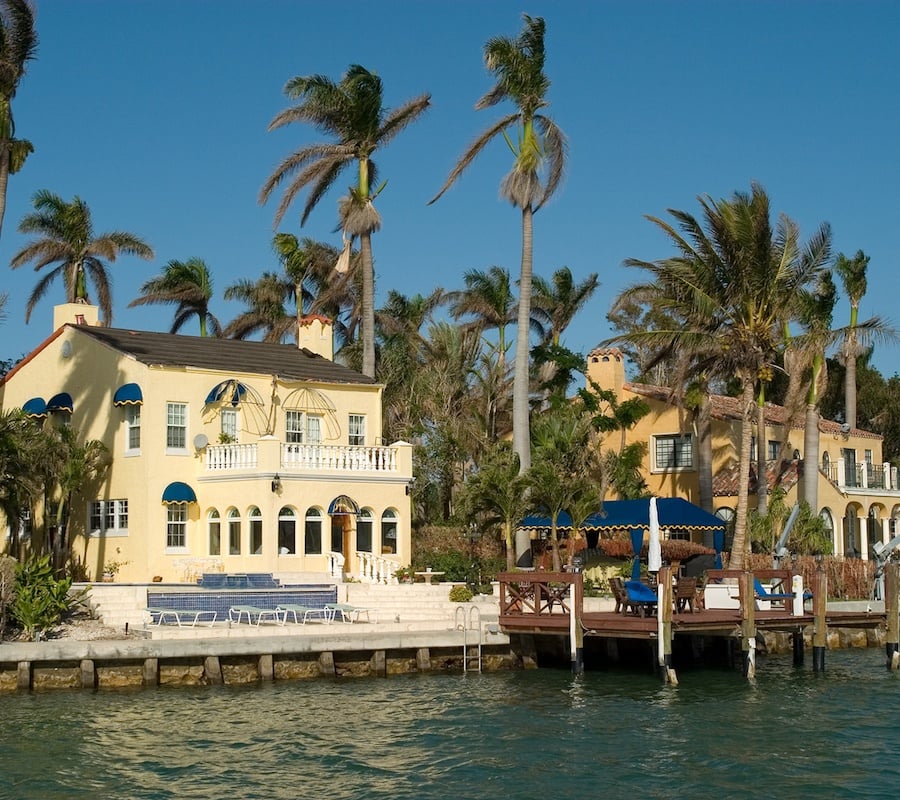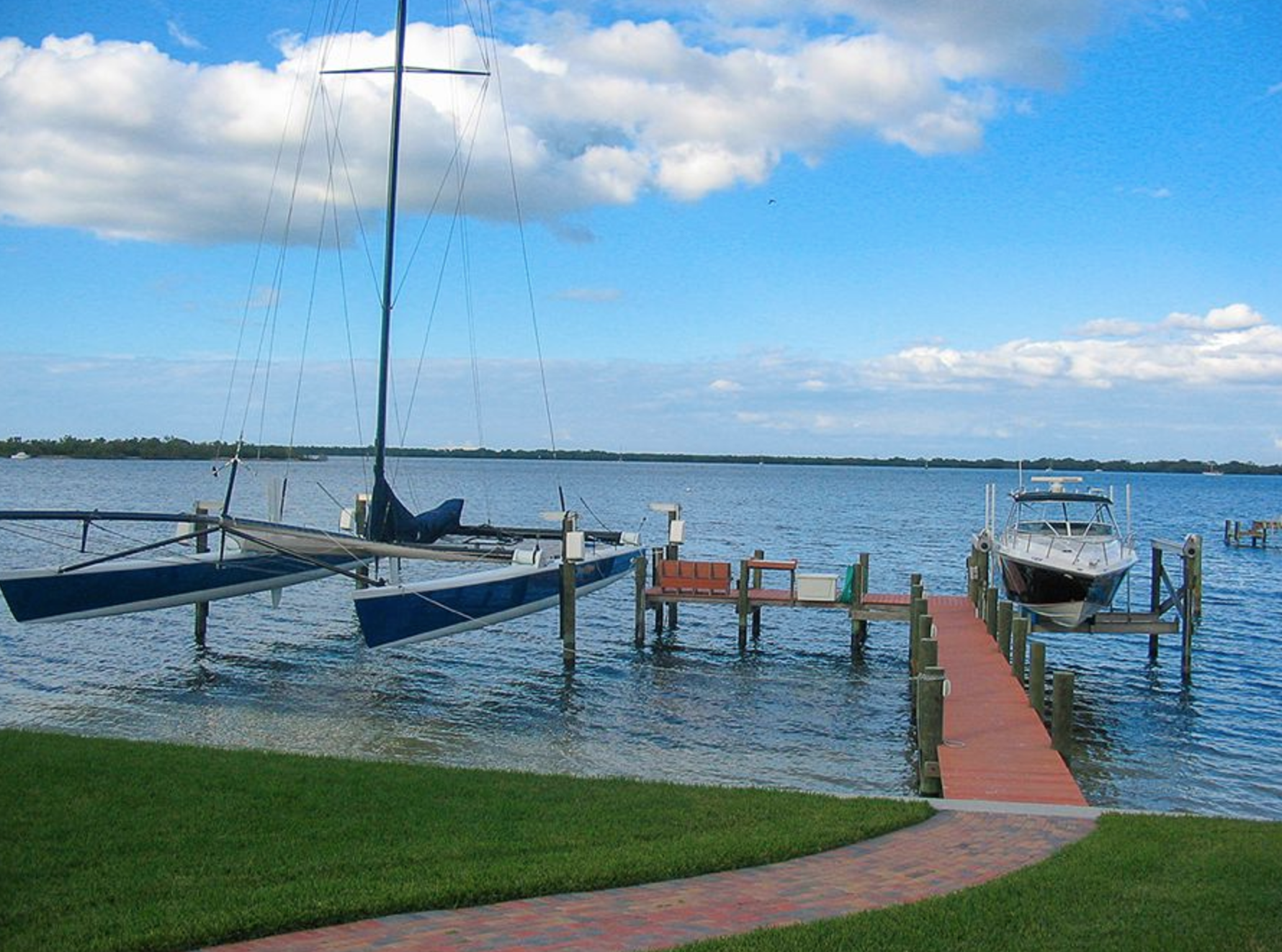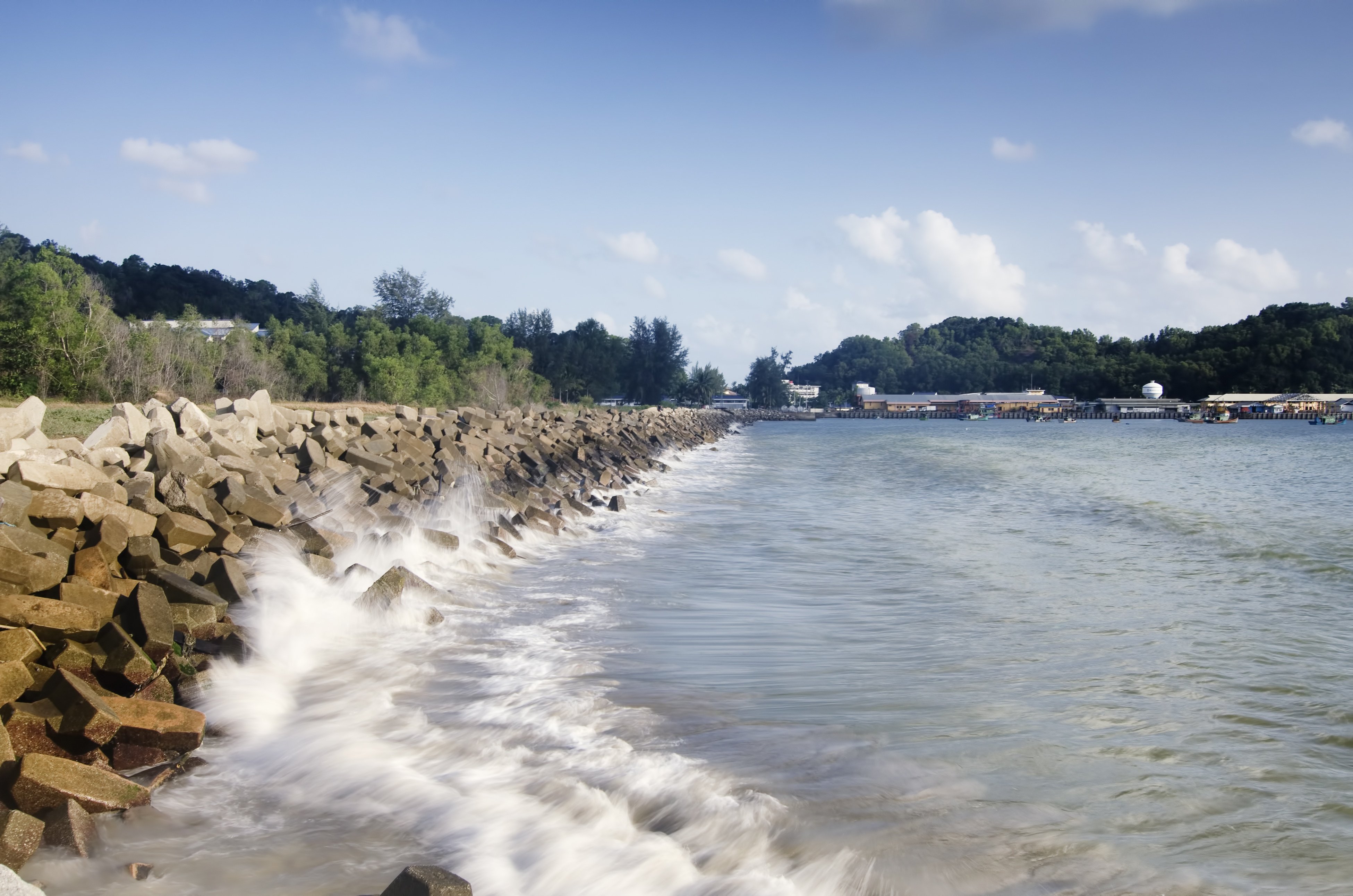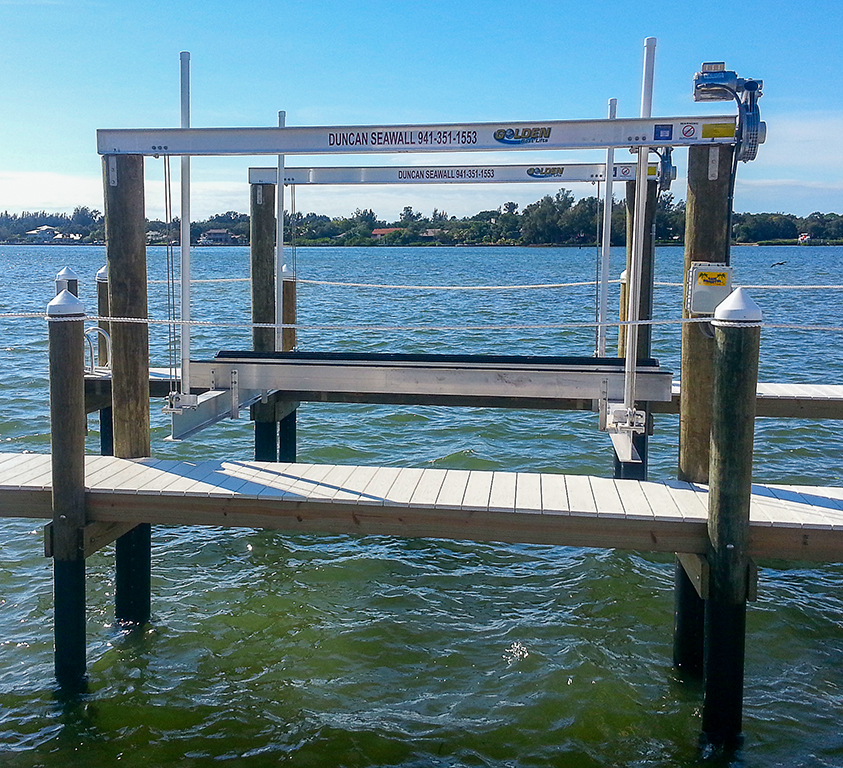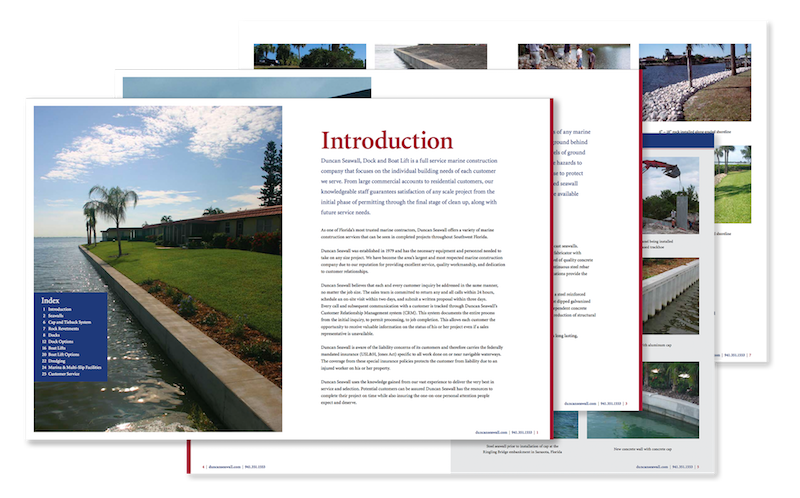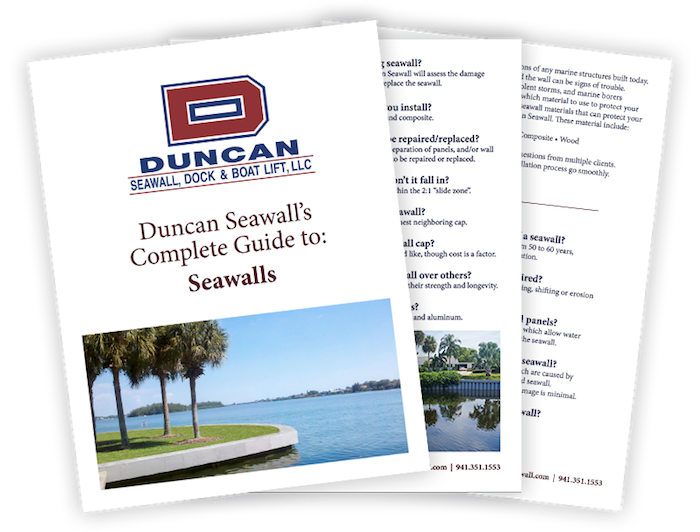Building a seawall is a great way to protect and enhance your waterfront property. Seawalls prevent erosion, control waves, and have the added bonus of increasing property value. There are several seawall materials available, each one suitable for different conditions and applications.
Related Blog: What to Expect When Building a Dock or Seawall
Consultation is Important
No single material is perfect for every seawall. Before you begin seawall construction, consult with an established and knowledgeable marine contractor like Duncan Seawall, Dock & Boatlift to determine which materials best fit your particular needs and budget. During the consultation process, we will discuss the entire range of choices and explain factors such as:
- Location & Accessibility
- Size of the Seawall
- Weather Concerns
- Marine Conditions
- Cost
Wood
Although it is the oldest material used for this type of construction, wood is not generally used for seawalls, but has many applications in retaining walls and marine barriers.
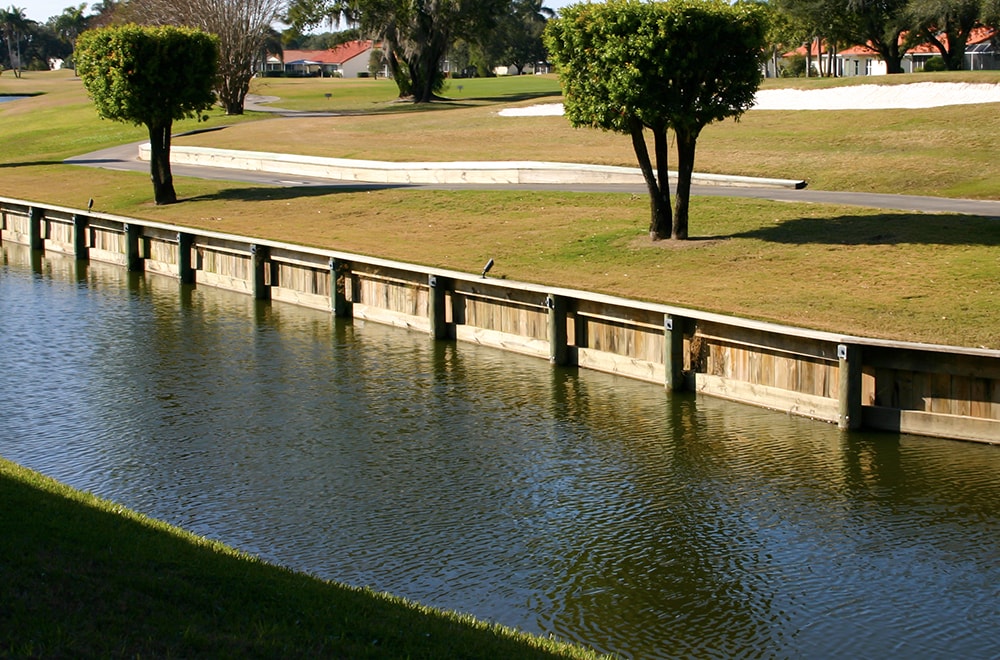
While wood works well in freshwater or above-water applications, it can deteriorate faster in harsh coastal environments. In saltwater conditions, wood is more prone to warping, rotting, and damage from marine organisms like shipworms. Because of this, many waterfront property owners opt for longer-lasting materials such as vinyl, concrete, or composite solutions when building seawalls exposed to tides and salt spray.
Metal
Steel and Aluminum seawalls are an economical way to build a seawall. Metal tends to stand up well to weather extremes, but will corrode or rust over long periods of time.
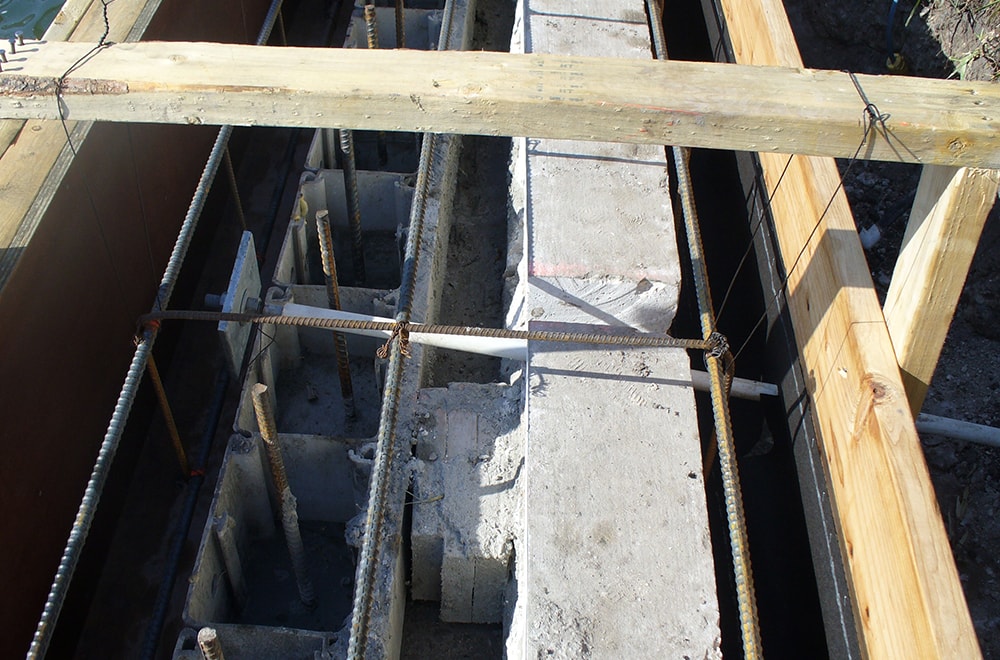
One thing to keep in mind is that installing a metal seawall usually requires heavy machinery and larger equipment, which can be challenging in tight spaces or areas with delicate ecosystems. In these situations, property owners may need to weigh the benefits of metal against possible access or environmental concerns and consider whether other materials might be a better fit.
Concrete
Concrete is one of the most durable materials used in seawalls. A concrete seawall will last for decades and require little or no maintenance.
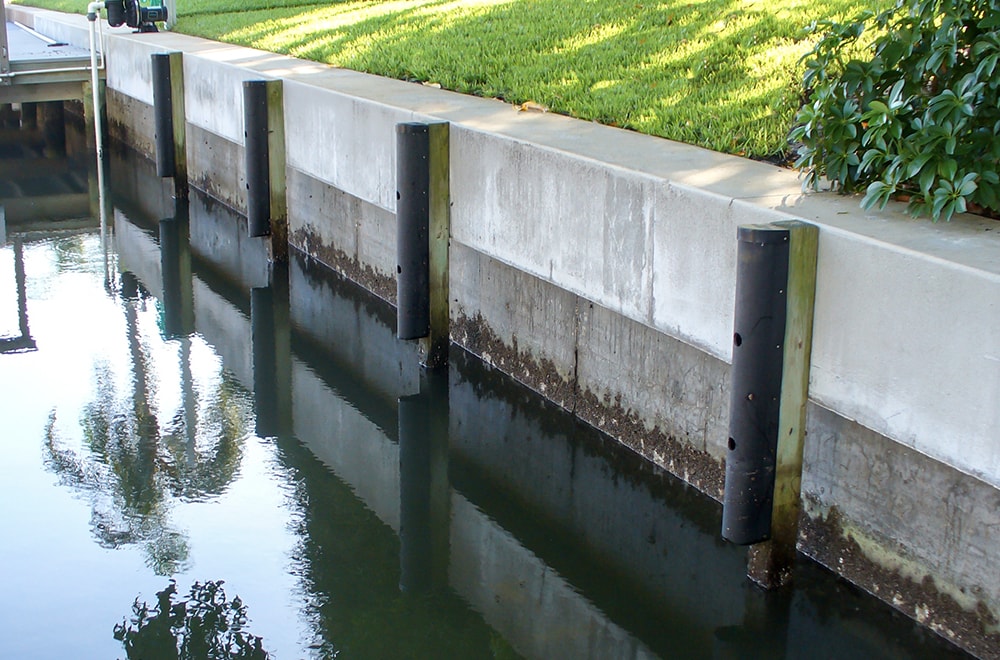
Resistant to rot, corrosion, and marine damage, concrete is a long-lasting solution for both freshwater and saltwater shorelines. Its versatility is another advantage; panels can be precast in various shapes, sizes, and finishes to meet a property’s specific needs and create a clean look that blends with surrounding landscaping or complements nearby architecture.
Vinyl and Composites
For small seawalls, or places that are difficult to get into, vinyl or composite materials work very well. Pre-formed panels can be quickly and efficiently installed with minimum heavy equipment, which makes vinyl appealing in environmentally sensitive locations.
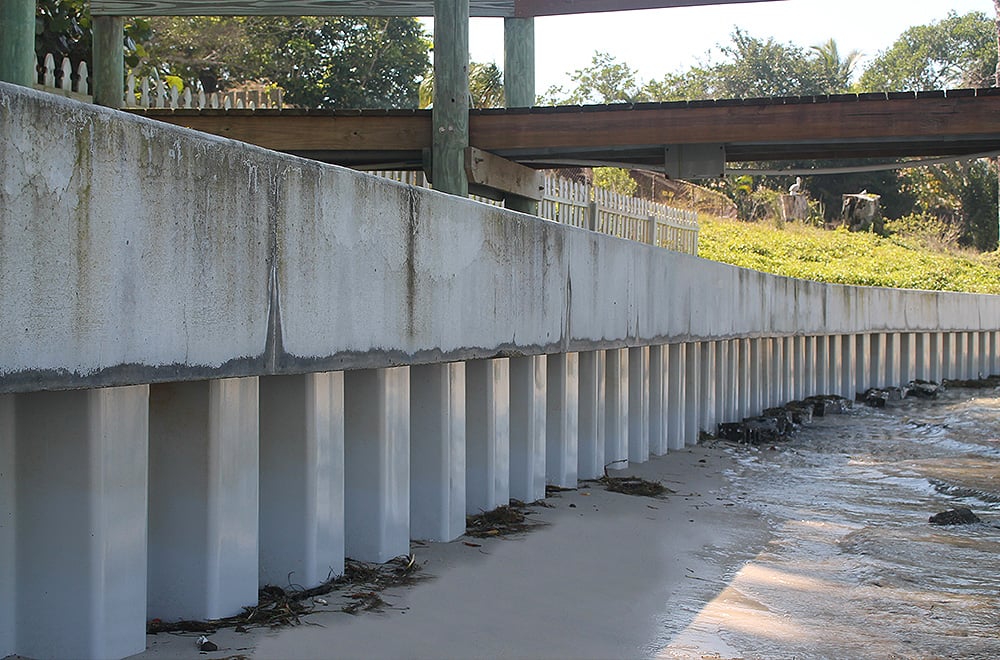
Since vinyl and composite materials are available in a wide range of colors, the seawall does not have to be painted to maintain coloration, and is resistant to fading and staining.
The downside of vinyl and composite materials is that they do not have the tensile strength of metal or concrete. For this reason, these materials are best used in small seawalls or situations where impact from storms and tides are minimal.
Repairs and Reinforcements
When your existing seawall needs to be repaired, raised, or reinforced, vinyl is often the material of choice. It is easier to get into the job site, which reduces traffic and access considerations. Additionally, vinyl or composite materials can be installed without removing the existing seawall, providing reinforcement and aesthetic appeal at a reduced cost. Interlocking panels will reduce the potential for erosion, and that translates into a longer lasting seawall with less maintenance and repair over time.
Contractor Concerns
The marine contractor who installs your seawall will influence the cost and efficiency of the job, including incidental considerations such as permitting. Look for a company that has an established reputation as seawall installers, along with the resources to get the job done right, on budget, and on time.
If the seawall will include lights or other electrical facets, choosing a contractor like Duncan Seawall, who has their own in-house electrical team, will save you money and provide a seamless construction process.
Duncan Seawall, Dock & Boat Lift has been serving Southwest Florida since 1979. We maintain our own fleet of equipment, including a large array of marine and land-based construction equipment. We have the staff to handle the entire job, from initial consultation to electrical work, and cleanup after the job is complete. To find out more about seawall materials, or to schedule a consultation at your location.



